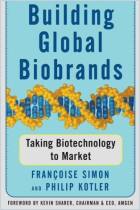Acesse a sua conta getAbstract para obter o resumo!

Acesse a sua conta getAbstract para obter o resumo!
Barry Werth
The Antidote
A Small Competitor Challenges the Drug Giants
Wall Street Journal Books, 2014
Sobre o que é?
Vertex Pharmaceuticals aims to change the world of Big Pharma.
Recommendation
Even if you regularly take a prescription drug, you might not consider the money, time, research and effort that went into creating and marketing your daily pill. But rest assured, somebody worked quite hard to create it. Journalist Barry Werth’s second study of the plucky start-up Vertex Pharmaceuticals follows Vertex founder Joshua Boger and his team in their quest to develop groundbreaking drugs for hepatitis C and cystic fibrosis. The saga has a happy outcome, but Vertex bled billions of dollars along the way. Werth could have cut his page count by a quarter or a third and not lost the essence of his tale. And when Boger steps down as CEO – when the hero of the story leaves the stage – the drama suffers. Still, Werth presents gripping insights into the pharmaceutical industry and the tortuous path pioneering drugs take to get to market. getAbstract recommends this eye-opening saga to investors, entrepreneurs, start-ups, students of finance and anyone fascinated by the complexities of the high-stakes pharmaceutical market.
Summary
About the Author
Journalist Barry Werth wrote The Billion-Dollar Molecule, also about Vertex.




















Comment on this summary